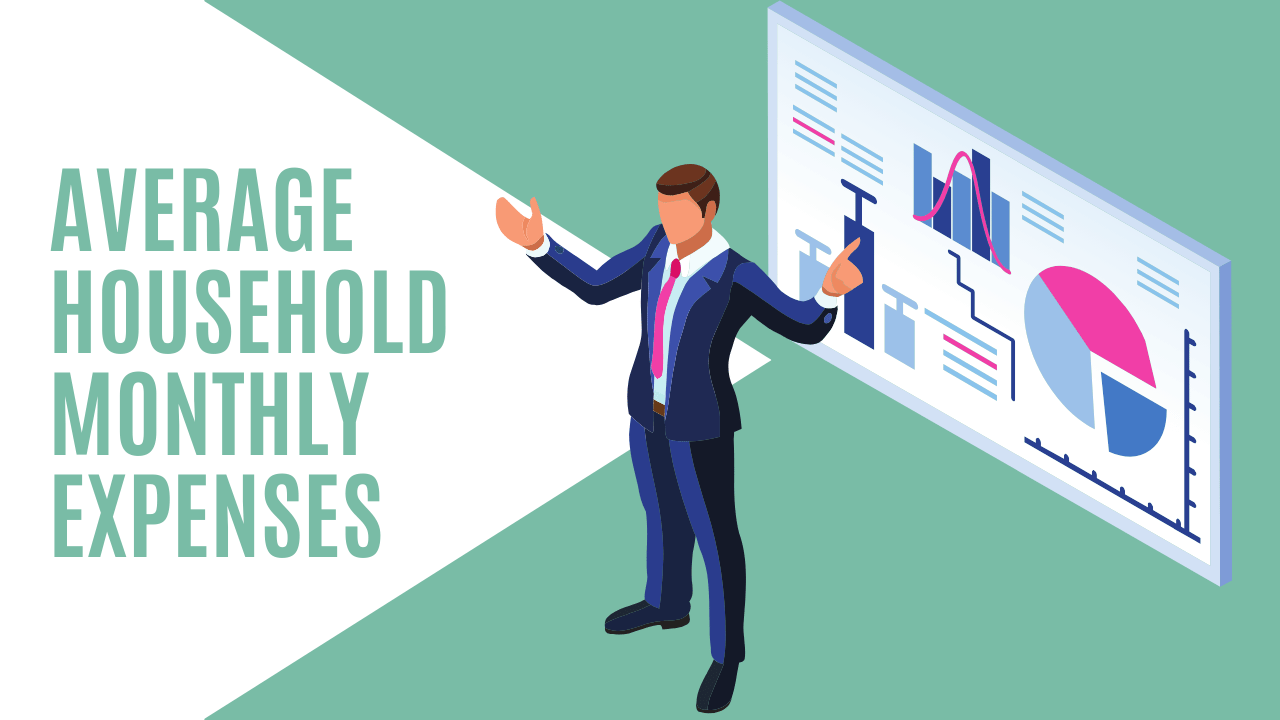Managing household finances can feel overwhelming without a clear understanding of your average household monthly expenses. These expenses represent the total cost of maintaining a household and include essentials like housing, food, and utilities, along with discretionary spending on entertainment and personal care. Knowing where your money goes each month is the foundation of financial security and effective budgeting.

In this article, we’ll explore the key components of household expenses, national averages, and strategies for managing costs efficiently.
What Are Household Monthly Expenses?
Household monthly expenses encompass all costs incurred to sustain a household’s operations and lifestyle. These can be divided into two main categories:
- Fixed expenses: Costs that remain constant, such as rent or mortgage payments.
- Variable expenses: Costs that fluctuate, like grocery bills or utility charges.
Understanding these categories helps households allocate their income and avoid financial stress.
National Averages for Household Expenses
The average household in the U.S. spends between $5,000 and $7,000 monthly, depending on location, family size, and lifestyle choices. Here’s a general breakdown of monthly expenses:
- Housing: $1,500–$3,500 (rent or mortgage)
- Utilities: $200–$400 (electricity, water, internet)
- Food: $600–$1,200 (groceries and dining out)
- Transportation: $400–$800 (car payments, insurance, fuel)
- Healthcare: $500–$1,000 (insurance and medical costs)
- Childcare/Education: $700–$2,000 (if applicable)
- Entertainment and Personal Care: $200–$600
These figures are averages and may vary significantly based on individual circumstances.
Breaking Down Average Household Monthly Expenses
1. Housing
Housing is the largest expense for most households.
- Homeowners face costs like mortgage payments, property taxes, and maintenance.
- Renters typically pay less upfront but may have higher monthly payments.
Consider downsizing or refinancing to reduce housing costs.
2. Utilities
Utilities cover essentials like electricity, water, heating, and internet.
- Seasonal changes often lead to spikes in utility bills.
- Energy-efficient appliances and habits can lower costs.
3. Food
Feeding a household is a significant monthly expense.
- Dining out is typically more expensive than home-cooked meals.
- Meal planning and bulk shopping can cut grocery costs.
4. Transportation
Transportation costs depend on vehicle ownership and usage.
- For car owners: Fuel, insurance, and maintenance are key expenses.
- Public transit users may save on costs, especially in urban areas.
5. Healthcare
Medical costs include insurance premiums, co-pays, and out-of-pocket expenses.
- Families with dependents often face higher healthcare costs.
- Regular checkups and preventive care can minimize unexpected expenses.
6. Childcare and Education
For families with children, childcare or education costs can take up a large portion of the budget.
- Daycare and private school tuition are significant expenses.
- Public schools and government programs offer more affordable options.
7. Entertainment and Personal Care
From streaming subscriptions to gym memberships, discretionary spending varies widely.
- Track your subscriptions to avoid paying for unused services.
- Opt for free or low-cost activities to save money.
How to Calculate Your Household Expenses
Calculating your average household monthly expenses helps you identify areas where you can save. Here’s a simple method:
- Track All Spending: Keep a record of every expense over three months.
- Categorize Expenses: Divide costs into fixed and variable categories.
- Identify Trends: Look for recurring expenses and seasonal spikes.
- Adjust for Unique Circumstances: Account for special occasions or emergencies.
Tips to Reduce Household Expenses
1. Housing
- Refinance your mortgage to lower interest rates.
- Consider relocating to an area with a lower cost of living.
2. Utilities
- Use energy-saving light bulbs and appliances.
- Monitor thermostat settings to reduce heating and cooling costs.
3. Food
- Shop with a grocery list to avoid impulse buys.
- Cook meals in bulk and freeze portions for later use.
4. Transportation
- Carpool or use public transit to cut commuting costs.
- Regularly service your car to avoid costly repairs.
5. Healthcare
- Compare insurance plans for the best rates.
- Use telehealth services for minor medical issues.
6. Childcare and Education
- Look for government subsidies or scholarships.
- Join parent co-ops for more affordable childcare options.
Budgeting for Household Expenses
Creating a budget tailored to your household’s needs ensures financial stability. Follow these steps:
- Assess Your Income: Calculate your total household income.
- List All Expenses: Include both fixed and variable costs.
- Set Financial Goals: Allocate funds for savings, debt repayment, and investments.
- Review Monthly: Regularly update your budget to reflect changes.
How Location Impacts Household Expenses
Where you live plays a significant role in determining your household expenses.
- Urban Areas: Higher housing and transportation costs but greater access to services.
- Rural Areas: Lower housing costs but potentially higher transportation expenses.
Use online tools like cost-of-living calculators to understand regional differences.
The Importance of Managing Household Expenses
Tracking and managing your household expenses offers several benefits:
- Financial Security: Avoid debt by living within your means.
- Emergency Preparedness: Build an emergency fund for unexpected costs.
- Goal Achievement: Save for long-term goals like a home or retirement.
Conclusion
Understanding and managing your average household monthly expenses is the cornerstone of financial health. By breaking down your costs, budgeting effectively, and adopting money-saving strategies, you can ensure a stable and comfortable lifestyle for your household.
Start by tracking your expenses and making small changes to save more each month. Over time, these efforts will lead to greater financial freedom and peace of mind. Whether your goal is to pay off debt, build savings, or simply live stress-free, the journey begins with understanding your expenses. Take control of your finances today!

